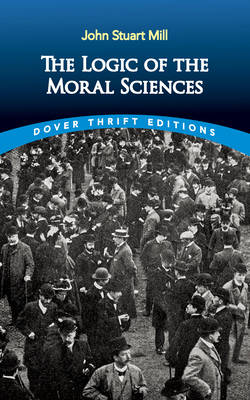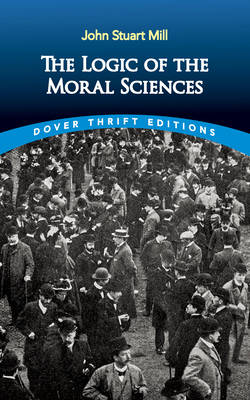
- Afhalen na 1 uur in een winkel met voorraad
- Gratis thuislevering in België vanaf € 30
- Ruim aanbod met 7 miljoen producten
- Afhalen na 1 uur in een winkel met voorraad
- Gratis thuislevering in België vanaf € 30
- Ruim aanbod met 7 miljoen producten
Zoeken
Omschrijving
John Stuart Mill (1806-73) was the most influential English philosopher of the nineteenth century. His vast intellectual output covered a range of subjects -- traditional philosophy and logic, economics, political science -- and included this work, a founding document in the area now known as social science.
In The Logic of the Moral Sciences, Mill applied his considerable talents to examining how the study of human behavior, society, and history could be established on a rational, philosophical basis. The philosopher maintains that casual empiricism and direct experiment are not applicable to the study of complex social phenomena. Instead, "empirical laws," drawn from historical generalizations, must be derivable from a deductive science of human nature. Mills' insights and approaches have remained relevant in the century and a half since this treatise's publication. This volume will prove of vital interest to historians of philosophy and the social sciences as well as to undergraduate social science majors.
In The Logic of the Moral Sciences, Mill applied his considerable talents to examining how the study of human behavior, society, and history could be established on a rational, philosophical basis. The philosopher maintains that casual empiricism and direct experiment are not applicable to the study of complex social phenomena. Instead, "empirical laws," drawn from historical generalizations, must be derivable from a deductive science of human nature. Mills' insights and approaches have remained relevant in the century and a half since this treatise's publication. This volume will prove of vital interest to historians of philosophy and the social sciences as well as to undergraduate social science majors.
Specificaties
Betrokkenen
- Auteur(s):
- Uitgeverij:
Inhoud
- Aantal bladzijden:
- 128
- Taal:
- Engels
- Reeks:
Eigenschappen
- Productcode (EAN):
- 9780486841977
- Verschijningsdatum:
- 21/05/2020
- Uitvoering:
- Paperback
- Formaat:
- Trade paperback (VS)
- Afmetingen:
- 124 mm x 198 mm
- Gewicht:
- 90 g

Alleen bij Standaard Boekhandel
+ 11 punten op je klantenkaart van Standaard Boekhandel
Beoordelingen
We publiceren alleen reviews die voldoen aan de voorwaarden voor reviews. Bekijk onze voorwaarden voor reviews.








